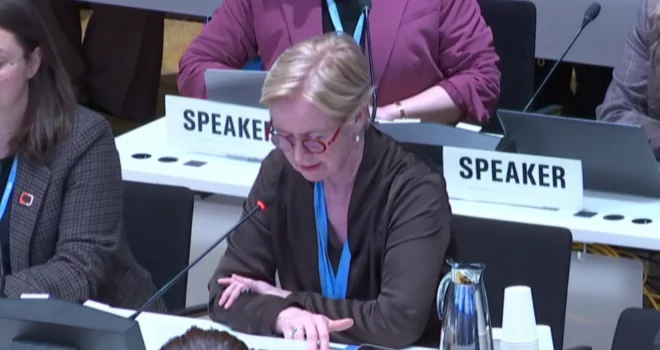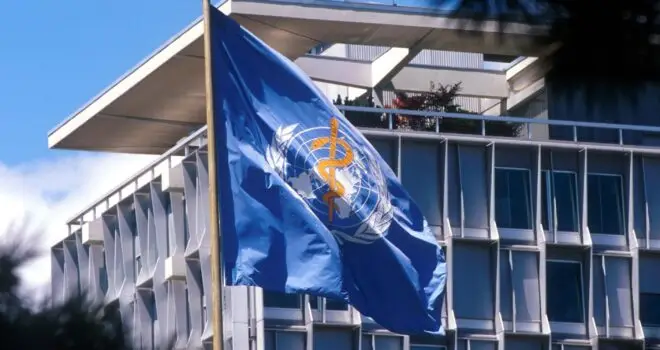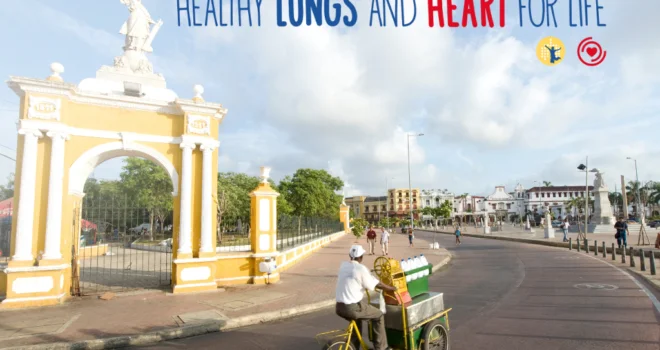Our Policy and Advocacy Manager Kelcey Armstrong-Walenczak is bringing us updates from the ground at the United Nations Climate Change Conference (COP28) in the UAE (30 November – 12 December), where leaders from governments, businesses, NGOs and civil society are gathered to find concrete solutions to climate change.
The COP28 climate negotiations in Dubai proved a historic moment for global health, with the first-ever official Health Day featured on Day 4 in the two-week programme of the global climate negotiations. Yesterday, 3 December, marked the culmination of years of advocacy diligently pursued by the World Health Organization (WHO), healthcare workforce, researchers, and international civil society to recognize health as an essential part of our interconnected global climate. This inaugural Health Day brought together over 50 Ministers of Health, alongside key climate activists and policymakers, to present a united front in tackling both health-systems-related contributions to climate change and the many impacts of our changing climate on human health.
Three major health announcements emerged from the four initial days of the COP28 programme. Firstly, a joint Political Declaration on Climate and Health was endorsed by 127 governments (and counting!). The declaration aims to bring increased urgency and a consistent health perspective to climate discussions, emphasizing that success should be measured not only in greenhouse gas emissions but in healthy human lives. Civil society broadly welcomed the declaration, noting that the support received from national governments is significant. However, while the document does make some important specific references to health impacts, such as the benefits of cleaner air, the declaration falls short of explicitly naming fossil fuels as the primary driver of climate change, leaving plenty of room for further advocacy efforts.
Secondly, major health institutions and philanthropies came together to endorse a set of Guiding Principles on Climate and Health Financing, accompanied by an initial billion-dollar allocation for new health investments in climate action. The financing principles seek to counter the increasing health impacts of climate change and air pollution, with a particular focus on funding solutions that reduce both carbon emissions and air pollution simultaneously. This is especially important considering the huge amount of investment currently directed towards fossil fuel subsidies each year, which directly contributes to both significant health care costs and DALYs lost through CVD and NCD-related morbidity and mortality.
Finally, civil society has come together in an impressive demonstration of coordination to produce a joint health-and-climate narrative and call to action: Act on Climate: Our Lives Depend on It. This call is the product of months of consultation, drafting, editing, and fine-tuning undertaken by dozens of global health organizations, including the World Heart Federation. In addition to providing opportunities for collaboration and mutual programmatic support among participants, this exercise has provided health advocates with a common template for engaging with policymakers across levels and sectors of governments, ensuring that we can speak with one voice when seeking to implement the strategies and actions we need most to ensure a healthy people and planet for all.
In addition to supporting pre-COP efforts to feature health more prominently on the global climate agenda, the World Heart Federation is actively engaging in discussions and side events on the ground in Dubai and looking forward to co-hosting a panel on air pollution and health on 6 December. We will continue to engage with the COP28 programme throughout the week, and we look forward to bringing you more information on the intersection of climate change and heart health.



